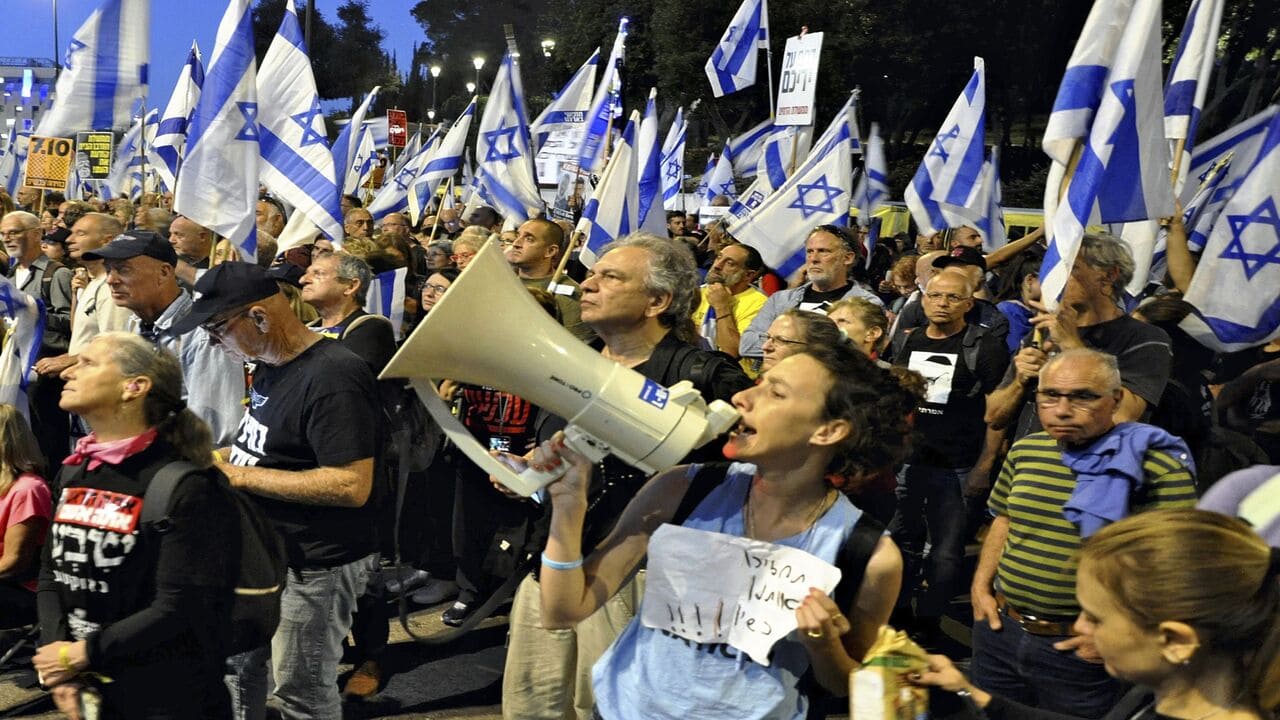
IndependentReport – In mid-September, large groups of Israeli citizens gathered outside the official residence of Prime Minister Benjamin Netanyahu in West Jerusalem. The demonstrators called for an immediate halt to the Gaza war, denouncing both the human suffering in the enclave and the heavy toll of prolonged conflict on Israeli society. They carried banners, chanted slogans, and demanded that their leaders pursue diplomacy over warfare.
This protest is part of a broader pattern of domestic unrest. While the Israeli government continues to justify military operations in Gaza on grounds of security, many citizens now argue that the strategy only perpetuates violence and instability. For them, the Gaza war has created an endless cycle of loss, draining resources, dividing society, and eroding Israel’s moral standing internationally.
The protest outside Netanyahu’s residence was not merely symbolic. Demonstrators brought forward clear demands that they believe could pave the way toward peace and humanitarian relief. Their demands highlight both the urgency of the humanitarian situation and the necessity of political compromise.
Key demands raised during the demonstration included:
These points reflect a growing frustration within parts of Israeli society. Protesters believe that without addressing these issues directly, the government cannot claim to represent the best interests of its citizens or the values of humanity.
Read More : Iran Executes Alleged Mossad Agent: Babak Shahbazi Amid Claims of Forced Confession
The demonstrations must be understood in the wider context of Israel’s domestic politics. For years, Netanyahu’s government has relied heavily on security policies and military deterrence to manage relations with Gaza. However, the continuation of violence has placed immense strain on Israeli citizens, who are weary of constant conflict and fearful of its long-term implications.
Meanwhile, the humanitarian crisis inside Gaza is worsening. Electricity shortages, scarce clean water, food insecurity, and collapsing health services have intensified. International aid groups have repeatedly warned that without a significant change in policy, the humanitarian situation could spiral even further out of control. These realities fuel the growing discontent among Israeli citizens who now see the Gaza blockade and military operations not as solutions, but as part of the problem.
The protest outside Netanyahu’s residence is significant for several reasons. Firstly, it reveals that Israeli public opinion is far from monolithic. While some sectors of society continue to support military action, others are increasingly outspoken in favor of diplomatic engagement and humanitarian relief.
Secondly, the protest adds pressure on Netanyahu’s government at a time when international criticism is also mounting. Human rights organizations, foreign governments, and multilateral institutions have urged Israel to reassess its policies toward Gaza. The fact that Israeli citizens themselves are demanding an end to the war makes it harder for the government to dismiss these calls as purely external pressure.
Finally, the call for a prisoner exchange highlights an important diplomatic dimension. Such an agreement would require negotiations with Hamas or through intermediaries, raising difficult but necessary questions about dialogue with adversaries. For many protesters, this is not a sign of weakness, but rather a pragmatic step toward reducing tensions and saving lives.
Also Read : Environmental Learning Center Muscatine: Where Education Meets Outdoor Adventure
The demonstration at Netanyahu’s residence represents more than public discontent; it signals a collective plea for change. Citizens who gathered in Jerusalem argue that Israel’s security cannot be achieved through endless military campaigns, but rather through political courage and humanitarian consideration. Ending the Gaza war, lifting the blockade, and securing prisoner exchanges were central themes echoed throughout the protest.
As the conflict continues, Netanyahu faces growing pressure both at home and abroad. Whether his government responds to these calls or doubles down on existing policies will shape not only the future of Gaza but also Israel’s own social and political stability. What remains clear is that the demand for peace and dignity is no longer coming only from outside critics it is being voice loudly from within Israel itself.
This Article About Israeli Citizens Written by: Lukman Azhari | Editor: Micheal Halim
Information Source: democracynow.org